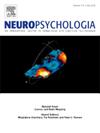Reward prediction-error promotes the neural encoding of episodic learning
IF 2
3区 心理学
Q3 BEHAVIORAL SCIENCES
引用次数: 0
Abstract
Reward prediction-error carries significant implications for learning, facilitating the process by influencing prior knowledge and shaping future expectations and decisions. However, the electrophysiological mechanism through which reward prediction-error impacts learning remains incompletely understood. This study aimed to investigate the neural characteristics of reward prediction-error and its effect on recognition memory using Event-Related Potentials (ERPs). Behavioral results indicate that unsigned reward prediction-error indeed enhances recognition performance, with reaction times being slower in “remember” responses compared to correct predictions. The ERP findings conform to a three-stage model of reward prediction-error, suggesting that physical salience is swiftly detected (N1), followed by the processing of positive reward prediction-error (Feedback-Related Negativity, FRN), and ultimately, unsigned reward prediction-error or outcome evaluation (P300). Moreover, early physical salience signals were associated with subsequent “know” responses, while later unsigned reward prediction-error signals predicted subsequent recognition performance. This study not only revealed the neural processing mechanisms of reward prediction-error but also explored its impact on recognition performance, particularly familiarity or recollection processing.
奖励预测错误促进情景学习的神经编码。
奖励预测错误对学习有重要的影响,通过影响先前的知识和塑造未来的期望和决定来促进学习过程。然而,通过奖励预测错误影响学习的电生理机制仍然不完全清楚。本研究旨在利用事件相关电位(event - correlation potential, ERPs)研究奖励预测错误的神经特征及其对识别记忆的影响。行为学结果表明,未签名奖励预测错误确实提高了识别性能,与正确预测相比,“记住”反应的反应时间更慢。ERP的研究结果符合奖励预测-错误的三阶段模型,表明身体显著性被迅速检测到(N1),随后是积极奖励预测-错误的处理(反馈相关消极,FRN),最后是未签名的奖励预测-错误或结果评估(P300)。此外,早期的物理显著性信号与随后的“知道”反应有关,而后来未签名的奖励预测错误信号预测了随后的识别表现。本研究不仅揭示了奖励预测错误的神经加工机制,而且探讨了其对认知表现的影响,特别是对熟悉或回忆加工的影响。
本文章由计算机程序翻译,如有差异,请以英文原文为准。
求助全文
约1分钟内获得全文
求助全文
来源期刊

Neuropsychologia
医学-行为科学
CiteScore
5.10
自引率
3.80%
发文量
228
审稿时长
4 months
期刊介绍:
Neuropsychologia is an international interdisciplinary journal devoted to experimental and theoretical contributions that advance understanding of human cognition and behavior from a neuroscience perspective. The journal will consider for publication studies that link brain function with cognitive processes, including attention and awareness, action and motor control, executive functions and cognitive control, memory, language, and emotion and social cognition.
 求助内容:
求助内容: 应助结果提醒方式:
应助结果提醒方式:


